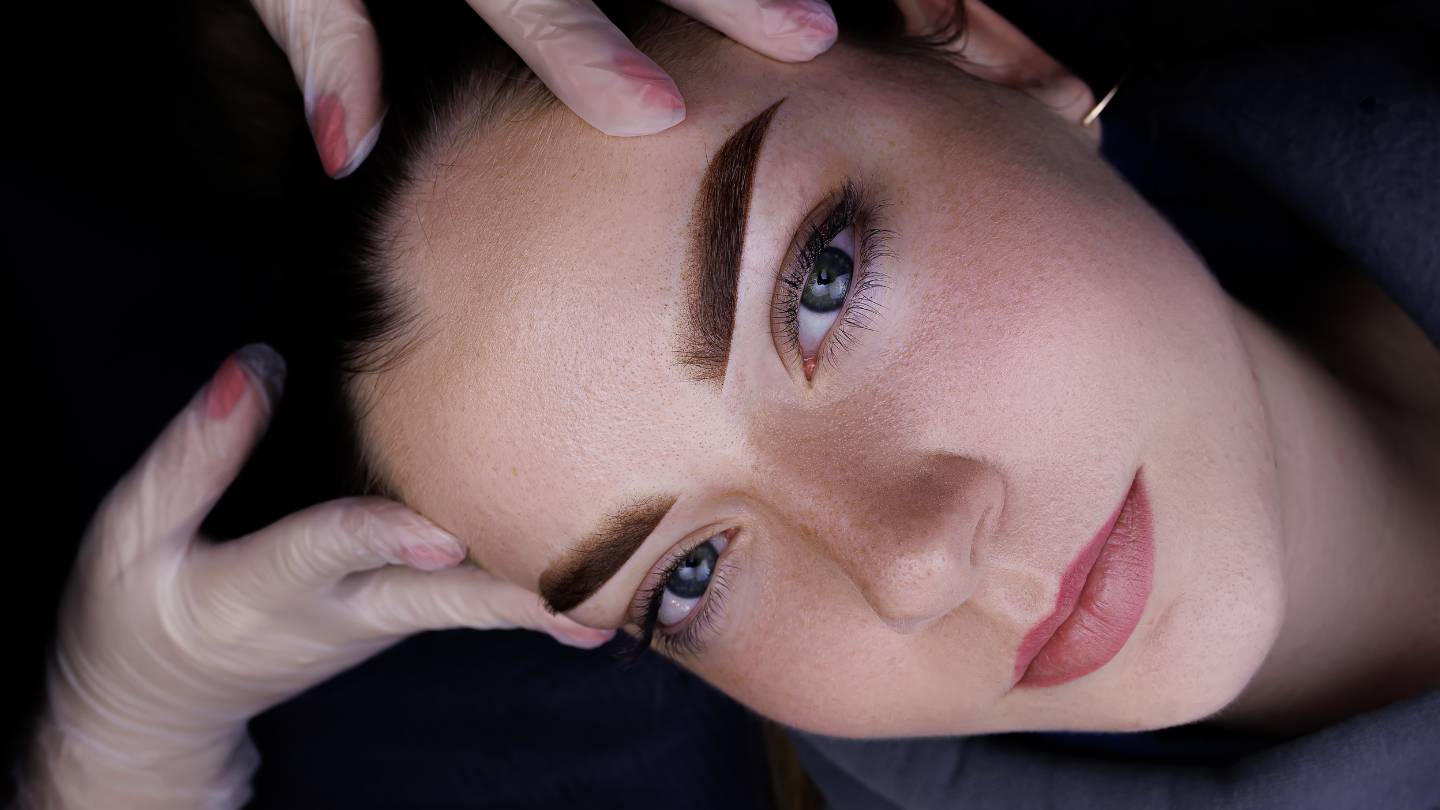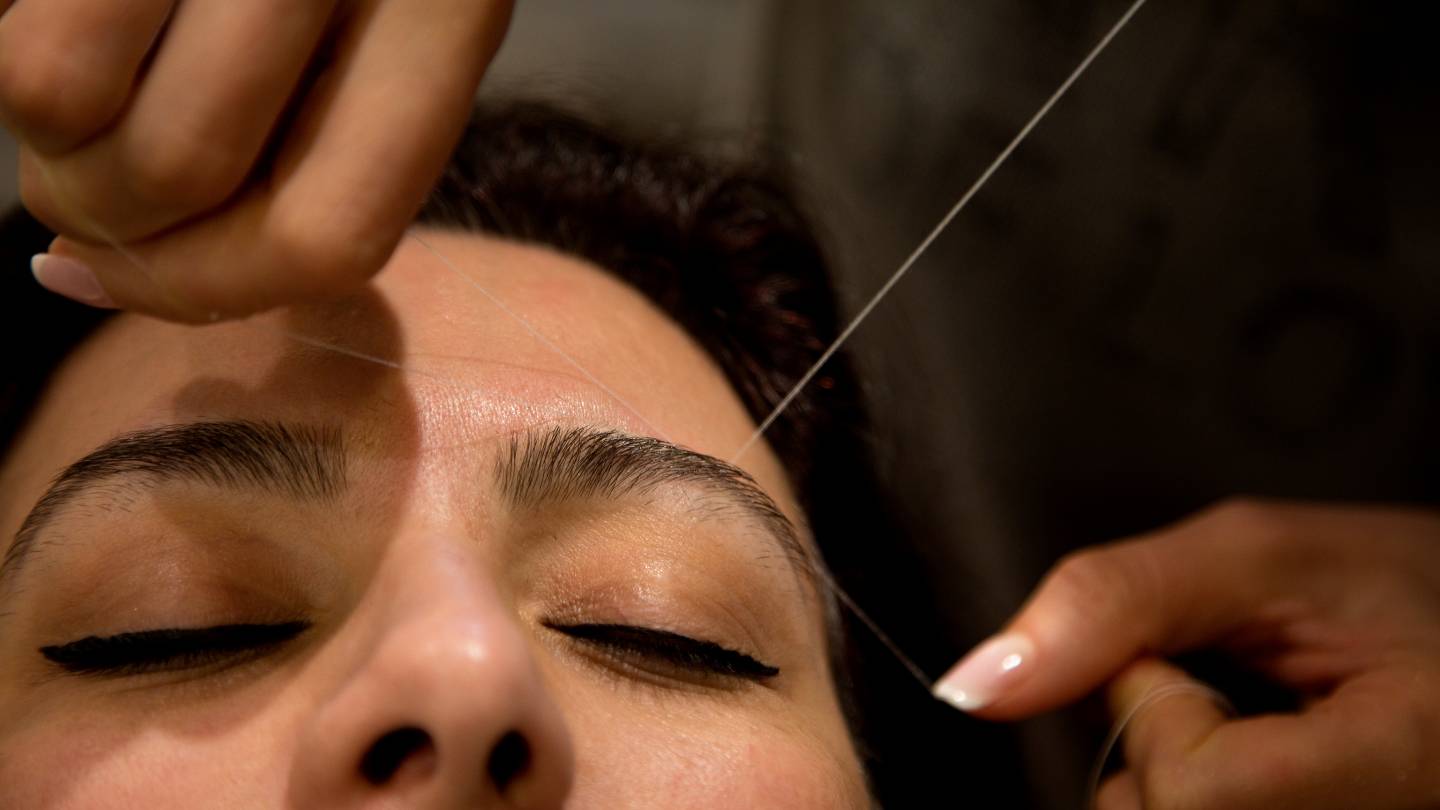Ombre brows, a popular semi-permanent makeup technique, provide a soft, shaded effect, giving the eyebrows a fuller, more defined look. Aftercare is essential after getting an ombre brow tattoo to ensure the healing process goes smoothly and the results last longer.
One of the common aftercare questions involves the use of coconut oil. Although coconut oil has received accolades for its hydrating properties as a natural moisturiser, it requires careful consideration for freshly tattooed brows.
While coconut oil is gentle on the skin and can help soothe dryness, it may not always be the best option for ombre brow tattoos during healing. Fresh tattoos need to breathe to heal properly, and applying heavy oils too early can clog pores or trap moisture, leading to complications like infections or faded pigment.
However, once the initial healing period has passed and your tattoo artist gives the green light, coconut oil can be beneficial in keeping the skin moisturised and promoting overall skin health around your brows. Following your artist’s specific aftercare instructions is always best to ensure optimal results.
Let’s get straight to the point.
Coconut oil can benefit ombre brow tattoo aftercare due to its moisturising, anti-inflammatory, and antimicrobial properties. However, it is not recommended during the initial healing phase as it may clog pores or trap moisture, leading to complications.
After the initial healing period, applying a small amount of high-quality coconut oil may help keep the area hydrated. Following your tattoo artist’s aftercare instructions, consider alternatives like aloe vera, grapeseed oil, or jojoba oil if coconut oil doesn’t suit your skin type. Proper aftercare ensures optimal healing and long-lasting results.
Coconut Oil: Nature’s Moisturiser
Coconut oil is widely known for its natural moisturising properties. It is abundant in necessary fatty acids and antioxidants, making it a common remedy for dry and irritated skin. In tattoo aftercare, including for ombre brows, it is believed that coconut oil could offer benefits by keeping the skin hydrated and reducing inflammation.
Benefits Of Coconut Oil For Skin Care
- Moisturising: Coconut oil is highly effective at locking in moisture, preventing the tattooed area from becoming dry or flaky.
- Anti-inflammatory: It contains lauric acid, which has anti-inflammatory properties that can help soothe irritation.
- Antimicrobial: The same lauric acid also has antimicrobial properties that may protect the skin from infection during healing.
While these benefits seem promising, it is essential to understand if coconut oil is a suitable choice for ombre brows tattoo aftercare.
How To Use Coconut Oil For Ombre Brows Tattoo Aftercare
If you decide to use coconut oil as part of your aftercare routine, follow these steps to ensure a safe and effective application.
Step 1: Wait For The Initial Healing Period
Before applying any product to the area, you should wait at least 24-48 hours after the tattooing procedure. During this time, the skin begins its natural healing process, and applying oils too early could trap bacteria or interfere with the healing.
Step 2: Use a High-Quality Coconut Oil
Ensure that you are using virgin, unrefined coconut oil. It retains the most natural properties without added chemicals, reducing the risk of irritation or adverse reactions.
Step 3: Apply Sparingly
Use clean fingers or a sterile cotton swab to apply a small amount of coconut oil to the brow area. A small amount is enough to moisturise the skin without overloading it. Over-application could clog pores, leading to unwanted complications.
Step 4: Monitor Your Skin’s Reaction
Coconut oil may cause breakouts or allergic reactions in some people. Monitor your skin’s response to the oil and discontinue use if you notice irritation or discomfort.
Considerations And Precautions
While coconut oil may work well for some individuals, there are better solutions for some. Several factors must be considered before using it as part of your aftercare routine.
Skin Type
People with oily or acne-prone skin may find coconut oil too heavy, leading to clogged pores and breakouts. If you are prone to such issues, it is better to explore lighter alternatives for moisturising your brows.
Allergies
Do a patch test when you add coconut oil to your face, especially if you have sensitive skin. An allergic reaction can cause unnecessary complications during the healing process.
Professional Advice
Tattoo artists often provide specific aftercare instructions for a reason. If your artist recommends avoiding oils like coconut oil, it is best to follow their guidance. Every skin type is different, and professionals are trained to provide the best advice based on your circumstances.
Alternatives To Coconut Oil For Ombre Brows Aftercare
If coconut oil doesn’t suit your skin, several other products can provide similar healing and moisture benefits.
Aloe Vera Gel
Aloe vera gel is well known for its calming and healing properties. It is a lightweight option that calms irritation and reduces redness, making it an excellent alternative to coconut oil.
Grapeseed Oil
Grapeseed oil is non-comedogenic and won’t clog pores, making it an ideal moisturiser for ombre brows. It also contains antioxidants and vitamin E, promoting healing without overwhelming the skin.
Jojoba Oil
Jojoba oil mimics the skin’s natural sebum and is generally well-tolerated by most skin types. It hydrates the skin without suffocating it, allowing the tattooed area to breathe and heal properly.
Shea Butter
Shea butter is another natural alternative with anti-inflammatory properties. It’s highly moisturising but should be used sparingly to avoid clogging pores.
Unscented Baby Lotion
For those who prefer non-oily options, unscented baby lotion is a gentle, effective moisturiser for the sensitive skin around your brows. It is designed to be mild, making it a safe choice for aftercare.
Key Points For Proper Ombre Brows Tattoo Aftercare
Aftercare for ombre brows is important, as it plays a vital part in the recovery process and the outcome of your brows. The healing process is about keeping the area clean and providing sufficient moisture to prevent scabbing, soothe irritation, and protect the skin from infections.
Proper care also ensures that the colour and shape of your brows remain intact, extending the tattoo’s longevity.
No matter which aftercare product you choose, you should follow some universal guidelines to ensure proper healing of your ombre brows tattoo.
- Keep the Area Clean: Clean the area with lukewarm water and mild, fragrance-free soap.
- Avoid Excessive Moisture: Protect the area from water exposure during the initial healing phase.
- Avoid Sun Exposure: Once healed, apply sunscreen to protect your brows from fading due to UV rays.
- Avoid cosmetics: Refrain from using skincare or cosmetics products like retinoids until the area is fully healed.
- Follow-Up Appointment: Schedule a touch-up appointment to ensure your brows heal correctly and address any potential patchiness.
Conclusion
Coconut oil’s natural moisturising and anti-inflammatory properties can benefit the aftercare routine for ombre brow tattoos. However, it is only suitable for some. Individuals with oily skin, allergies, or sensitivity to coconut oil should consider alternative aftercare products.
Always follow the professional aftercare advice your tattoo artist provides and use any product in moderation to avoid complications. Whether you choose coconut oil or one of the alternatives, the goal remains: to ensure that your ombre brows heal beautifully and last as long as possible.
FAQs About Ombre Brows Tattoos
Can I Use Coconut Oil On My Freshly Done Ombre Brows Tattoo?
Yes, coconut oil can be used on ombre brow tattoos, but it is advisable to wait until the initial healing phase (usually 24-48 hours post-procedure) is over. Always follow the specific aftercare instructions provided by your technician.
What Are The Benefits Of Using Coconut Oil On Ombre Brow Tattoos?
Coconut oil is known for its moisturizing and anti-inflammatory properties. It can help keep the tattooed area hydrated, soothe the skin, and potentially reduce the risk of scabbing and itchiness during healing.
How Often Should I Apply Coconut Oil To My Ombre Brows Tattoo?
You can apply a thin layer of coconut oil 2-3 times daily, depending on your skin’s dryness. Ensure the area is clean and dry before each application.
Is There Anyone Who Shouldn’t Use Coconut Oil On Their Ombre Brows Tattoo?
Individuals with allergies or sensitivities to coconut oil should avoid using it. Additionally, if you have very oily skin, coconut oil might be too heavy and could clog pores, so consider lighter alternatives.
How Do I Apply Coconut Oil To My Ombre Brows Tattoo?
Gently cleanse the area with lukewarm water and pat dry. Apply a small amount of coconut oil with clean fingers or a cotton swab, ensuring a thin, even layer over the tattooed area.



